A total of 20 projects won Global Incubator Seed Grants this month, allowing them to kickstart new research examining a whole host of issues, from the cyber defense of medical devices to the impacts of affordable housing on physical activity and health in Brazil.
Established in 2021, the Global Incubator Seed Grants program aims to stimulate high-impact research initiatives linking WashU faculty and international collaborators. These projects are expected to lead to next-stage funding, publications, and deeper ties between WashU and partners around the globe. Since its launch, the program has supported 87 projects worldwide.
Funding for this year’s cycle is made possible with support from the Office of the Provost, the “Here and Next” strategic plan, and the Millard family gift to the McDonnell International Scholars Academy.
Through the Global Incubator Seed Grants program, we are investing in innovative projects that demonstrate exceptional promise in driving academic excellence and research impact. The projects this year were selected from a highly competitive pool of applicants, and embody the priorities outlined under the Research vertical of the Here and Next Strategic Plan.
Vijay K. Ramani, Vice Provost for Graduate Education and International Affairs
54
Projects proposed in 34 countries
20
New projects launched
$500K
Total funding awarded
View the 2024 Seed Grant recipients
Africa
Human-livestock-environment dynamics in highland Ethiopia: Ecological challenges and opportunities in ancient-modern food webs
Foreign Collaborator’s Institution: Addis Ababa University, Ethiopia
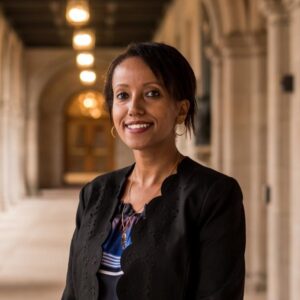
Human populations have historically adjusted to climate change via migration and adaptable farming practices. This study examines the interactions among humans, livestock, and the environment in the Kaffa region of highland Ethiopia, integrating archaeological, anthropological, and ecological methodologies with indigenous knowledge. Through creative food web research, we will develop comprehensive models for many historical periods to comprehend how people have sustained resilient ecosystems across time. The research investigates indigenous animal breeds, analyzing their functions within local food webs and their significance for sustainable agriculture. We will examine trophic linkages and human influences on ecosystems through fieldwork, which encompasses ethnographic interviews, soil sampling, and archaeological excavations. This collaborative effort with Ethiopian institutions seeks to develop techniques for biodiversity protection and sustainable agriculture.
HIV assets for retention and mobilization to benefit East Africa
Foreign Collaborator’s Institution: Center for Family Health Research and Development, Kenya
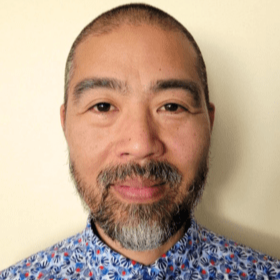
In Kenya, it is estimated that there are 1.6 million people living with HIV/AIDS. Several barriers exist to access HIV care, including structural barriers: such as long travel times, high costs, and long waiting times at clinics. Negative provider attitudes and poor provider-patient interactions and stigma associated with health facilities and HIV/AIDS in the community can make it difficult for people to access HIV care. To address some of these barriers, this pilot study seeks to formalize and adapt a reciprocity-based Pay-it-Forward (PIF) strategy for retention fit to setting in Kenya using user-centered design methods.
HEARTS in Africa: Health equity and resources for hypertension and cardiovascular treatment solutions
Foreign Collaborator’s Institution: University of Abuja, Nigeria

Heart disease and stroke rates are rising sharply in sub-Saharan Africa, primarily due to hypertension. Our Hypertension Treatment in Nigeria Program, one of the largest and most successful programs globally, increased hypertension control rates from 22% to 56% among 21,897 patients (142,249 visits) between January 2020 and December 2023. We not only learned what worked, but also why it worked through rigorous implementation assessments. Starting January 2025, we will scale this program across Nigeria with NIH/NHLBI funding. In this proposal, we aim to evaluate readiness for integrating hypertension services into primary care in six additional sub-Saharan African countries: Cameroon, Kenya, Mali, Mozambique, South Africa, and Uganda. We will utilize the World Health Organization’s Service Availability and Readiness Assessment. Our results will help create the HEARTS in Africa Program, a regional initiative to integrate hypertension and cardiovascular services into routine care, aligning with several key pillars of Here & Next.
Tailoring an evidence-based family strengthening intervention as a preventive approach to climate change stressors
Foreign Collaborator’s Institution: Makerere University, Uganda
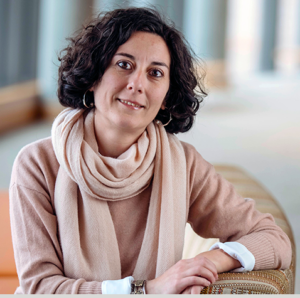
WashU Co-PIs:
Fred Ssewamala, Brown School
Mary McKay, Brown School
Climate change results in economic loss, threats to human health, displacement, and conflict, each affecting child, adolescent and family (CAF) well-being and undermining family and community protective processes. As environmental conditions degrade, community and family-level instability and stress will only further undermine CAF outcomes without exposure to climate-change conscious evidence-based interventions that bolster adaptive community and family responses as protective shields for children. Hence, novel and climate change-conscious EBIs that bolster community and family-level adaptation to rapidly changing conditions are needed to address the complex climate change consequences. Guided by the Method for Program Adaptation through Community Engagement (M-PACE) approach, this study will collaboratively tailor the Amaka Amasanyufu (Happy Families in the local language) intervention -a family strengthening intervention focused on child behavioral health- through a series of working groups with climate change experts and community partners to infuse climate change-related content that is easily digestible for families in Uganda.
Prep-AI: Development and validation of a machine learning model to identify high-risk adolescent girls and young women unlikely to initiate HIV pre-exposure prophylaxis in Uganda
Foreign Collaborator’s Institution: Makerere University, Uganda

WashU Co-PI:
Proscovia Nabunya, Brown School
Adolescent girls and young women (AGYW) in sub-Saharan Africa (SSA) contribute 63% of all new HIV infections in the region1. This is partly due to most HIV prevention strategies—such as condom use—primarily depending on male partner cooperation2. Pre-exposure prophylaxis (PrEP), a highly effective biomedical intervention, empowers AGYW to have control over their risk of acquiring HIV independently of their sexual partners’ actions. However, PrEP remains underutilized, with only ~25% of eligible AGYW initiating the treatment3-5, which warrants targeted strategies to improve its uptake. Building on established collaboration between Makerere University and WashU Brown School scholars, we propose to leverage Machine Learning methodologies to develop the first ever model to identify high HIV risk AGYW in Uganda, who are unlikely to initiate PrEP, despite being eligible. If accurate, this model can guide clinicians on which AGYW need enhanced support, thus providing an opportunity for early and targeted intervention.
Asia
Energy transition for child health and well-being: A child development account strategy
Foreign Collaborator’s Institution: L.N. Gumilyov Eurasia National University, Kazakhstan; Center for Economic and Social Development, Azerbaijan

WashU Co-PIs:
Beth Martin, Arts & Sciences
Aytakin Huseynli, Brown School
The global transition from fossil fuels to renewable energy is a profound societal shift that must prioritize social and economic development to build a new economy based more on human capital. Child Development Accounts (CDAs) are an evidence-based strategy for inclusive growth through investment in children’s education and long-term development. Kazakhstan launched a universal CDA policy in 2024, allocating 50% of its National Fund’s earnings from oil and gas wealth to CDAs (US$700 million in the first year). Azerbaijan, another oil-rich country, is exploring a similar policy. WashU’s Center for Social Development (CSD) has informed and advised in these CDA policy developments. We will facilitate South-South and Triangular Cooperation between Kazakhstan and Azerbaijan to exchange know-how on CDAs. The project aims to generate evidence on implementation and effectiveness of CDAs in Kazakhstan, inform a similar policy in Azerbaijan, and set the stage for transformation toward human-capital economies during the energy transition.
Unlocking carbon-free ammonia energy technologies for environmental sustainability
Foreign Collaborator’s Institution: Nanyang Technological University, Singapore
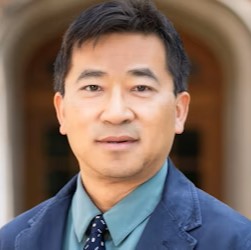
The development of clean and carbon-neutral hydrogen energy technologies is crucial for human civilization’s energy and environmental sustainability. However, hydrogen faces grand challenges in production, transportation, distribution, and storage. As a hydrogen carrier, ammonia has been recognized as a vital carbon-neutral liquid fuel and a distributed energy storage material because it is a widely used chemical for many purposes and can be handled safely. Ultimately, unlocking advanced ammonia energy technologies, including direct ammonia fuel cells with viable efficiency and ammonia decomposition (i.e., cracking) at economical temperatures (i.e., <400 °C), is critical for decarbonizing most emission-heavy sectors in the US, including fertilizer production, steel making, heavy-duty transport, and chemical manufacturing. In this seed project, WashU and the international collaborator at Nanyang Technological University-NTU, Singapore, aim to develop low-cost and highly efficient catalysts to be implemented into NTU’s ammonia fuel cell and cracking reactors that could significantly reduce costs and increase the efficiency of electricity generation and on-site hydrogen generation.
Non-invasive cyber defense of medical devices
Foreign Collaborator’s Institution: National Taiwan University & National Yang Ming Chiao Tung University, Taiwan ROC

With the emerging digital transformation, hospitals remain under an increasing threat of cyberattacks, impacting the public health of public citizens. As a matter of fact, cyberattacks aimed at hospitals doubled between 2022 and 2023. These attacks on hospitals impact patients through the loss of critical equipment and a decrease in hospital availability. Regulatory requirements and proprietary hardware/software on medical devices have limited the ability to use traditional on-device intrusion detection, so we propose a new system that monitors externally surveyable characteristics such as power, temperature, and EM that can be added to medical devices. With this grant, the WashU team will collaborate with two Taiwanese universities to engineer instrumentation and a detection model on a custom printed circuit board and perform a pilot study in Taiwan.
Europe & Middle East
Spatiotemporal protein folding by the CCT/TRiC complex
Foreign Collaborator’s Institution: University of Helsinki, Finland
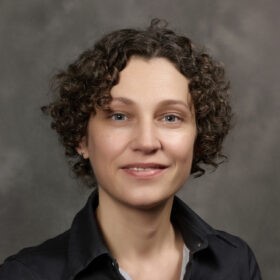
Every protein in your body begins as a string of amino acids that have to be folded into a complex 3D structure to become fully functional. CCT/TRiC is a professional protein folding machine, estimated to be responsible for the correct folding of 15% of all proteins expressed in a cell. Concomitantly, decline of CCT/TRiC function with age or cellular stress has been linked to cancer, cardiovascular disease and pathophysiological protein aggregation leading to neurological disorders, including Alzheimer’s and Parkinson’s disease. However, how CCT/TRiC specifically recognizes and folds so many different proteins remains unknown. We found a series of novel CCT/TRiC substrates that have a similar structure but are only 30% identical in composition. We are now using these proteins to get a better insight into the rules of CCT/TRiC substrate recognition and protein folding, which will ultimately enable us to develop ways to restore CCT/TRiC function in disease.
Understanding the role of climate change and human arrival on Mediterranean coastal and island environments
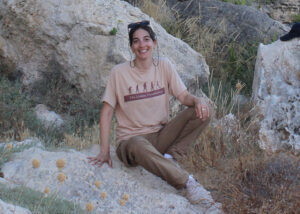
Foreign Collaborator’s Institution: University of Haifa, Israel; University of Algarve, Portugal
The last glacial period (~110-11.7 kya LG) and transition into the Holocene (11.7 kya- today) saw drastic sea level changes caused by climate change. At the same time the Mediterranean region witnessed faunal and flora turnovers and the first human arrival on a Mediterranean island (Sicily at ~17kya). But how climate change had a part in causing these environmental changes and what role human arrival played on these marginal environments has never been studied. This project wants to fill these knowledge gaps by reconstructing how Mediterranean sea level and temperature changes, animal survival and extinctions since before first human arrival. We will search Sicilian coastlines and underwater landscapes for buried soils, caves, and fossils. To understand how human arrival interacted with the already impacted local environments we will compare archaeological and natural sites. Our goal is to understand the translation from global-to-local climate-to-environmental change from the deep past to today.
Thermal stress memory for sustainable agriculture
Foreign Collaborator’s Institution: University of Warwick, United Kingdom
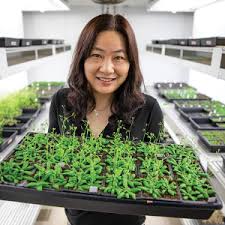
Plants are significant sources of food, feed, fiber, fuel, and medicine. Climate change together with other environmental assaults represent constant threat for plant survival and productivity. Thus, there is an urgent need to develop “climate resilient plants” to cope with varying environmental conditions for sustainable agriculture. This project aims to address these challenges by understanding how plants cope with environmental stresses and how do they reprogram the chromatin and transcriptional landscapes to generate adaptive responses. Specifically, we investigate dynamic epigenome alterations in response to heat stress, heat-induced epigenetic memory, and transgenerational epigenetic inheritance. As we probe basic principles governing epigenetic regulation that are conserved across eukaryotes, the findings gained from this pioneering project will be readily applicable to a wide range of plant species. Such knowledge will lead to the development of novel strategies that harness epigenetic regulation to develop sustainable, nutritious, and resilient crops, thereby revolutionizing the agricultural landscape.
Local protein synthesis and the assembly of the centrosome-cilium complex
Foreign Collaborator’s Institution: University of Warwick, United Kingdom

The centrosome-cilium complex is a conserved animal organelle that underlies the organization of cells and their ability to signal to each other. Defects in centrosomes and cilia are linked to human diseases including cancer, microcephaly, dwarfism, and ciliopathies, highlighting the importance of understanding how these organelles form. Through a poorly understood process, they are built from hundreds of proteins that must find each other and coalesce with in a cell’s cytoplasm. To understand where these proteins come from within the cell as they seek each other out, we will image when and where centrosome-cilium proteins are made within living cells, using both the nematode C. elegans and human tissue culture cells as experimental systems. We will integrate expertise in genetics (Dr. Griffin; Warwick) and centrosome-cilium biology (Dr. Wang; WashU) to understand how these critical organelles assemble.
Innovative sensors to detect pathogens in the UK and US municipal wastewater
Foreign Collaborator’s Institution: Cranfield University, United Kingdom

Proper treatment of municipal wastewater is critically important to public safety and environment. Meanwhile, municipal wastewater can also be used to track important compounds that are excreted from human bodies. In particular, the global pandemic in the past few years has stimulated a strong interest in wastewater-based epidemiology (WEB), which analyses wastewater to determine the presence and exposure to pathogens/viruses in a population. A key technology barrier for WEB is the sensor for effective detection. In this project, researchers from WashU (USA) and Cranfield University (UK) will jointly investigate the detection of pathogens in wastewater using a paper-based diagnostic device developed at Cranfield University. This international collaboration will strengthen the links between WashU and Cranfield University, provide a foundation for future collaborative proposal applications, and increase the WashU’s visibility in UK. A joint workshop between WashU Center for Water Innovation and Cranfield Water Science Institute will be planned.
Latin America
Local/global gender activism: Transdisciplinary and trans-hemispheric knowledges in movement
Foreign Collaborator’s Institution: National University of Córdoba, Argentina; Tecnológico de Monterrey, Mexico

The proposed Global Incubator Seed Grant aims to host a gathering of academics and community activists at the Universidad Nacional de Córdoba in Argentina as part of the project “Local/Global Gender Activism: Transdisciplinary and Trans-hemispheric Knowledges in Movement.” This initiative explores how communities in Argentina, Mexico, and the US are responding to increasing threats against women and gender minorities. By employing collaborative and digital public humanities methods, the project encourages a global exchange of knowledge and strategies for gender activism. The Córdoba convening will facilitate discussions on how community activists and academics can learn from each other’s successes and improve advocacy efforts against gender violence. Key questions include how to leverage transdisciplinary approaches to foster supportive environments for women and marginalized gender identities and how to bridge the gaps between community advocacy and academic work. Overall, this project seeks to create a network of humanities scholars and community activists that strengthens responses to legal and societal challenges faced by these communities across the Americas.
The effects of digital transformation in finance
Foreign Collaborator’s Institution: Central Bank of Brazil & SEBRAE, Brazil; National University of Singapore, Singapore

This project investigates the transformative potential and implementation challenges of two major financial innovations—open banking and PIX (Brazil’s instant payment system)—for micro-entrepreneurs and small businesses in Brazil, which generally represent the more vulnerable population. These technologies offer significant benefits, including improved access to credit, enhanced cash flow management, and reduced transaction costs. However, moving towards a more digitized financial system can leave out firms and individuals that are less tech-savvy and depend on ‘soft information’ that is difficult to digitize. By combining administrative data analysis, surveys, and a randomized controlled trial (RCT), we aim to understand how these innovations affect financial inclusion, social mobility, business formalization, and growth. We will also examine how current adoption patterns impact the efficacy of these systems. Our research will provide crucial insights for optimizing digital financial systems in emerging markets, potentially improving financial inclusion and social mobility and supporting economic development.
Evaluating the impacts of affordable housing on physical activity, health, and climate resilience in Brazil
Foreign Collaborator’s Institution: University of São Paulo & Pontifical Catholic University of Paraná, Brazil
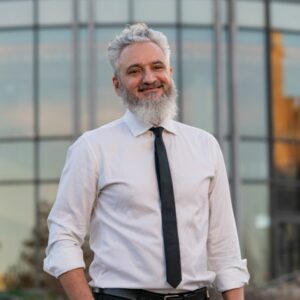
Climate change increasingly affects housing access, health systems, and overall well-being, particularly in low-income populations. Affordable housing programs, like Brazil’s “Minha Casa Minha Vida” (MCMV), are crucial for building climate resilience and advancing health equity. This project will evaluate MCMV impact on health outcomes, physical activity and climate resilience. Using mixed methods and a community-driven co-creation process, we will develop a framework to assess how large-scale housing policies can better support health and climate resilience. The co-created framework, informed by local communities, governments, and academic partners, will provide insights into the intersection of housing development, climate adaptation and mitigation, and public health. This project aims to guide policy improvements that promote long-term health, address socio-spatial inequalities, and enhance climate resilience for vulnerable populations.
Rental support for Venezuelan migrants in Colombia: Assessing early evidence of impact on self-reliance, mental health, and social integration for female-headed households
Foreign Collaborator’s Institution: University of the Andes, Colombia

WashU Co-PI:
Ilana Seff, Brown School
Our study aims to assess early evidence on the potential impact of a rental assistance program for displaced Venezuelan female-headed households in Colombia. In addition to improving housing stability, the program, implemented by the humanitarian organization, Blumont, aims to improve cognitive function, mental health and future-oriented decision-making by mitigating the “psychology of scarcity.” We propose to use this seed grant to conduct a secondary analysis of Blumont’s preliminary data to examine the program’s potential impact on mental health, cognitive function, social integration, and self-reliance among participants. This seed grant also represents an important opportunity to strengthen an emerging partnership with Blumont through co-authorship, while providing early learning and proof of concept on how rental support affects displaced female-headed households. This research will provide the groundwork to co-develop an NIH R01 grant proposal, employing a robust experimental design to explore the long-term impacts of housing stability on mental health and self-reliance.
10-5-2-1-0: School-based nutrition ecology intervention for child obesity prevention in Quito
Foreign Collaborator’s Institution: Universidad San Francisco de Quito, Ecuador

Globally, nearly one in five (18%) children ages 5-19 years are overweight or obese, contributing to an escalating public health burden in low- and middle-income countries (LMIC). However, high-quality evidence on the effectiveness of comprehensive obesity prevention interventions in LMICs is sparse. The 10-5-2-1-0 pilot study applies a cluster randomized controlled design to pilot test the efficacy of a social marketing strategy on obesity prevention among school-age children. The intervention, adapted to the Ecuadorian context, draws on an existing framework endorsed by the American Academy of Pediatrics, to influence child sleeping patterns (10 hours), dietary patterns (5 servings of fruits and vegetables/0 sugar- sweetened beverages and ultra-processed foods), screen time (2 hours maximum), and physical activity (1 hour/d). This project will provide insights into the approaches needed to influence health behaviors of children using a school-based platform and involving parents, teachers, school administrators, and community health workers.
Zero bloodstream infections
Foreign Collaborator’s Institution: Hospital Maria Pediatric Specialties, Honduras
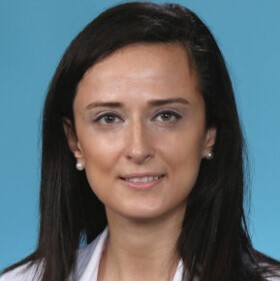
WashU Co-PI:
Patrick J. Reich, Medicine
Central-line associated bloodstream infections (CLABSIs) pose a risk to the health of hospitalized patients around the world, prolonging hospital stays and increasing the morbidity and mortality related to hospitalization. While many upper-middle and high-income nations in the Global North have significantly reduced CLABSI rates with aseptic placement protocols and surveillance strategies, low and middle-income (LMIC) Latin American nations continue to experience higher CLABSI rates in their intensive care units (ICUs) by comparison. We seek to investigate factors associated with CLABSI development at Hospital María, Pediatric Specialties (HMEP) medical center in Tegucigalpa, Honduras and develop multimodal interventions targeted at reducing institutional CLABSI rates. These interventions will include bundles of care and maintenance strategies, and educational modules based on the World Health Organization (WHO)’s 2024 guidelines for prevention of CLABSIs. We will also measure CLABSI rates after the interventions and compare this to existing baseline data from 2023-24.
Wastewater urbanism
Foreign Collaborator’s Institution: National Autonomous University of Mexico, Mexico

By the year 2050, urban water demand will increase by 80% and climate change will alter the quantity and timing of surface water in regions that are already experiencing water shortages. Under these conditions, conflict between urban and agricultural areas over water will increase. Urban wastewater reuse is a potential solution to these conflicts, returning wastewater rich in plant nutrients to agricultural areas in exchange for priority access to water, but there are risks. Heavy metals, industrial waste, plastics, parasites, and environmentally persistent pharmaceuticals have become ubiquitous byproducts of urbanization, making the safe reuse of this water a challenge. This is the condition we find in Mexico City today, where the world’s largest wastewater agriculture system irrigates around 230,000 acres of land with the wastewater of 22 million people. This system poses health risks but it also increases Mexico’s climate resilience in a warming world. Our research will investigate the set of urban policies and practices that would make wastewater agriculture sustainable in central Mexico. Our hypothesis is that wastewater agriculture also requires a missing wastewater urbanism.